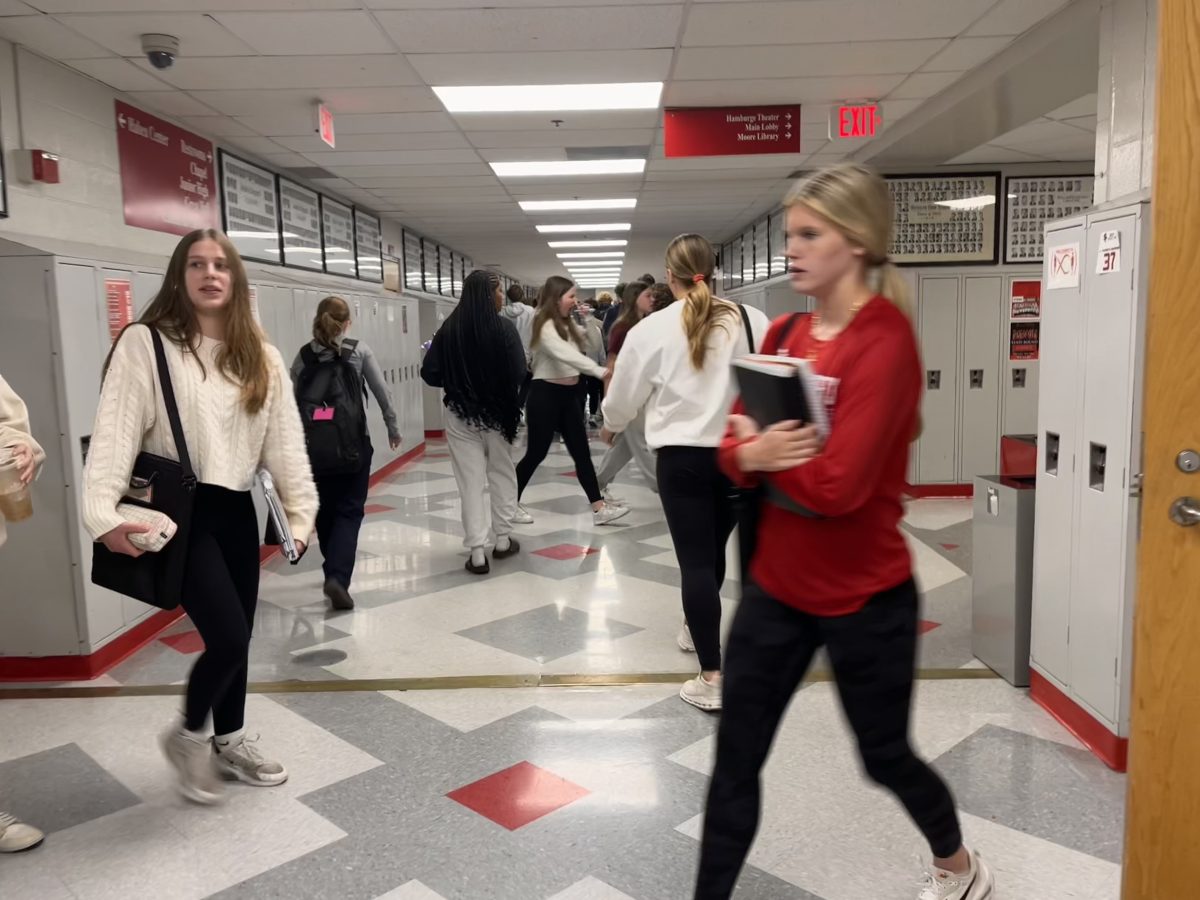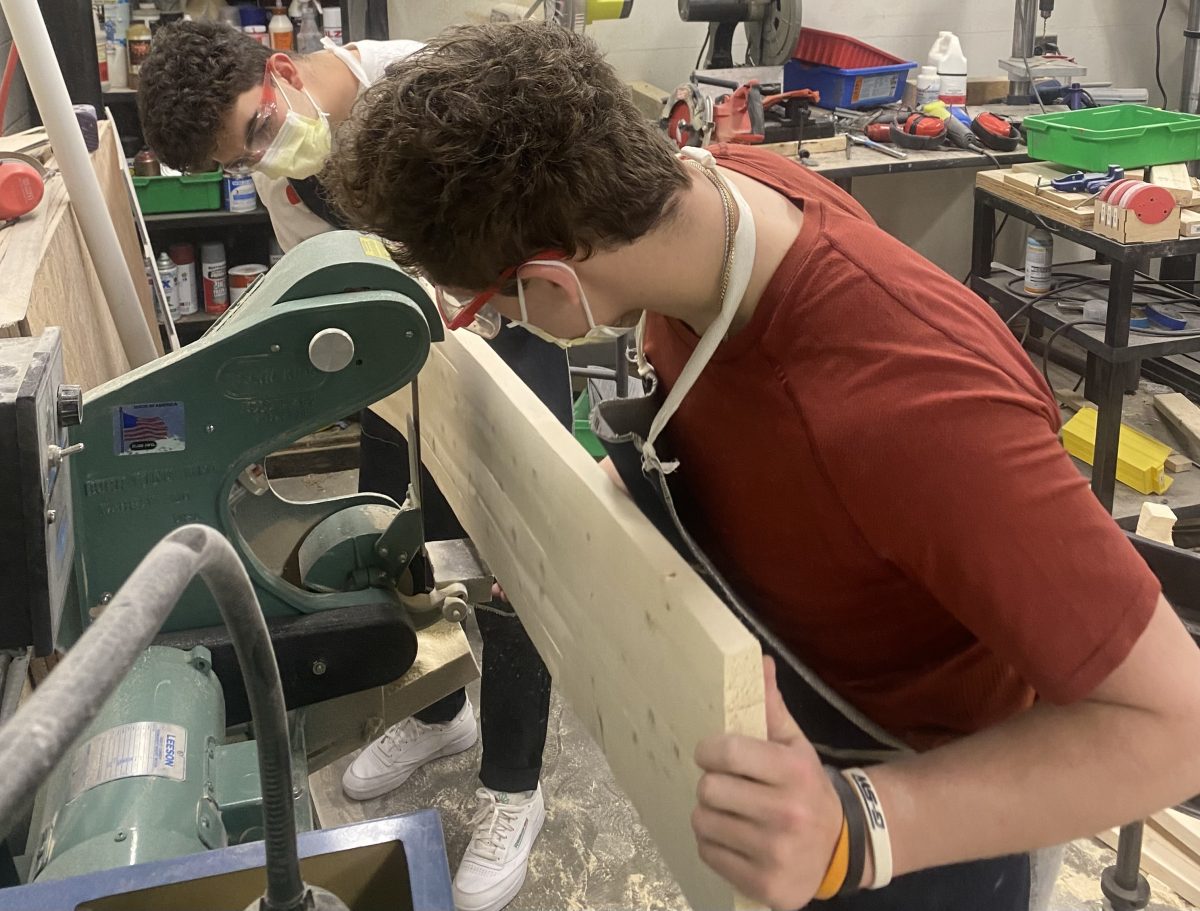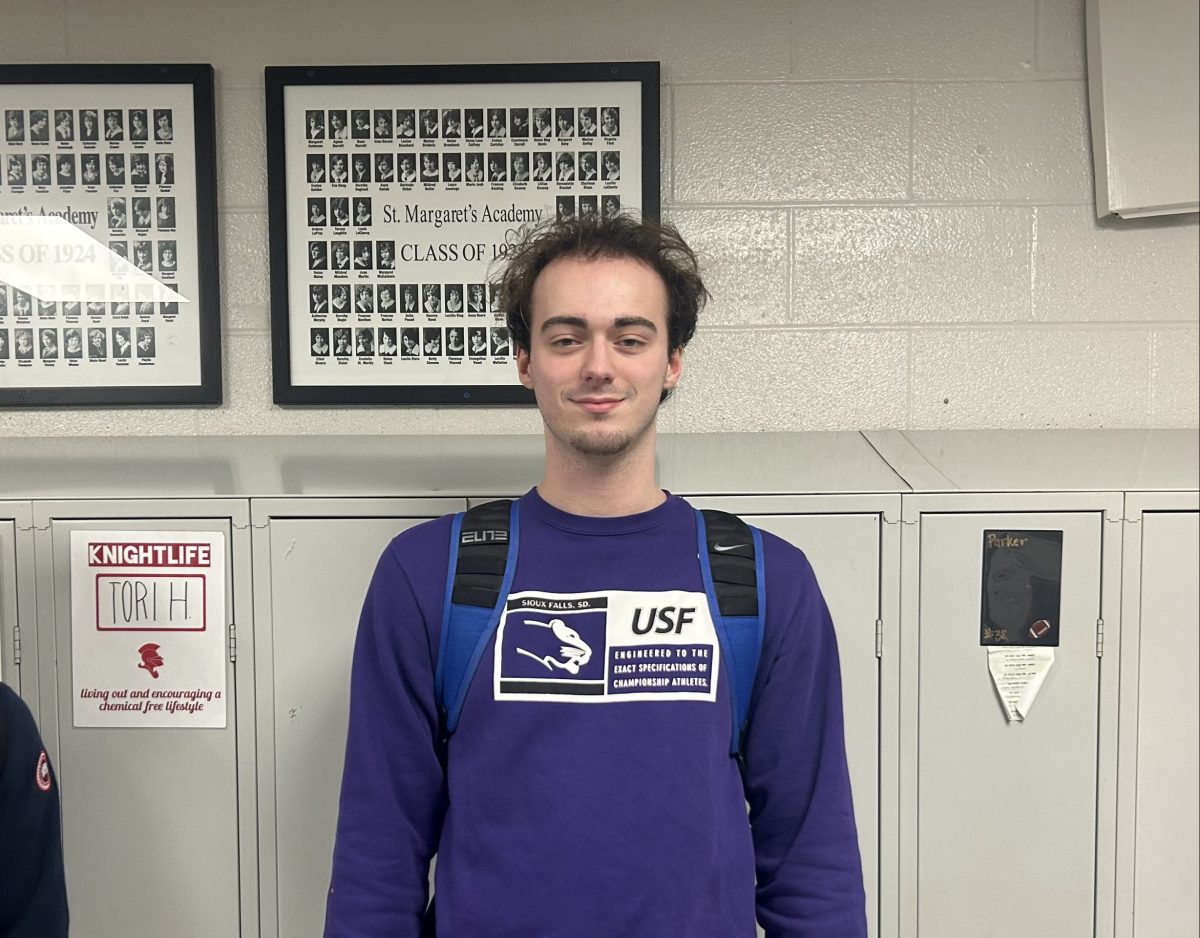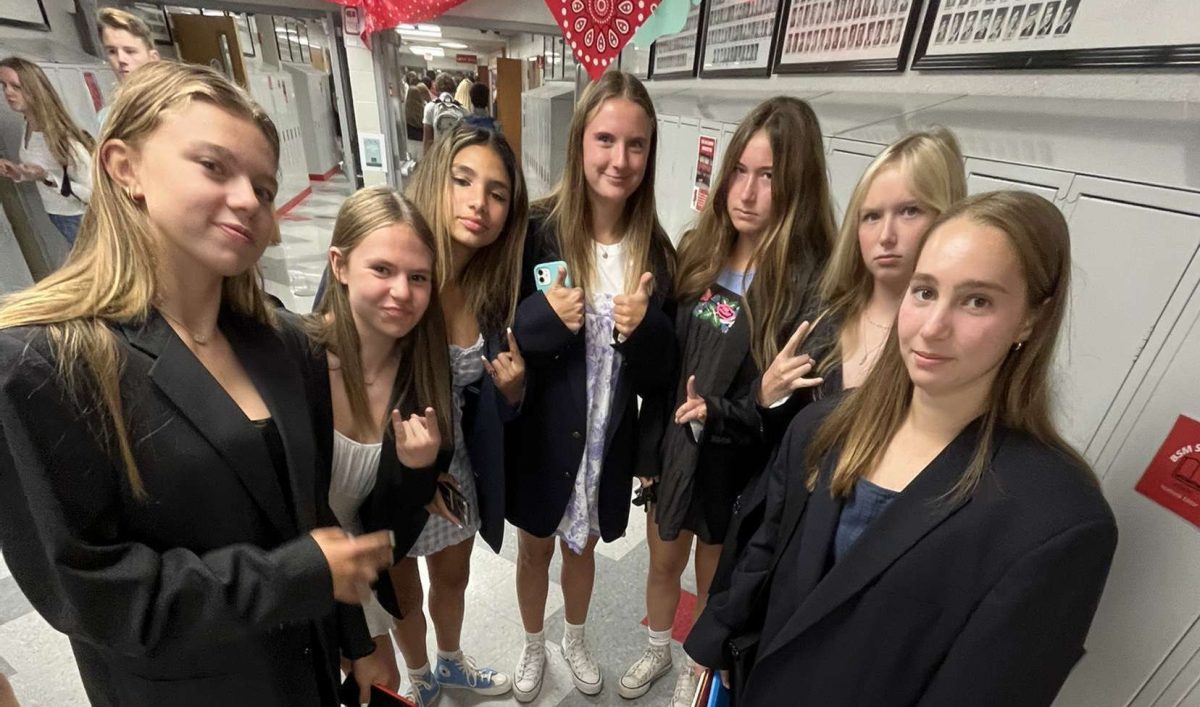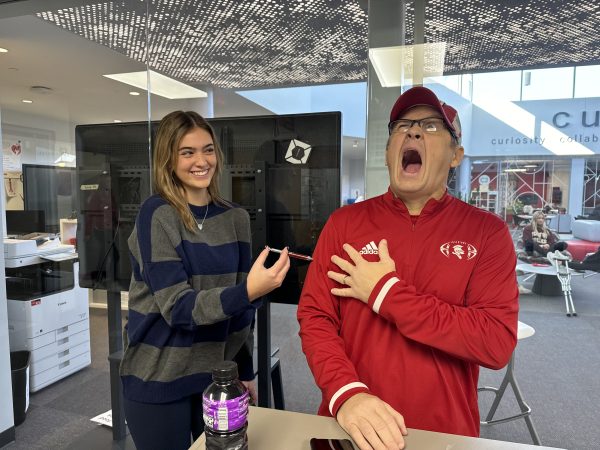Managers: The Unsung Heroes of Fall Sports
Senior Sedona Brown is in her second year as a manager for the Football team, and loves managing because she gets to be involved in the sport she loves.
As the midway point of the fall sports season has passed, it’s time to take a look at the necessary and often underappreciated cogs to every high school sports team: the managers. From pre-practice water duties to game filming and providing moral support to those on the playing field, managers, as always, are putting in work this fall.
The impact of a manager is seen most often in a game, but they have a major role in practices as well. “During practice, we shag balls to help practice go more smoothly. During games we film games and run stats of all the players,” volleyball manager junior Elke Thielen said.
The duties of a manager can often entail (although are not limited to) pre-practice and in-game water duties to keep the players hydrated, preparing the sidelines/equipment before games, filming games, making brownies, running the team’s Twitter account, recording statistics, and keeping the injured players company. The manager is a part of the team, but does not feel pressure to perform well. “[The best part about managing is] being able to go to all the team events and having fun with the team. You feel like you’re on the team but you’re not obligated to perform well and there’s no pressure,” boys’ soccer manager senior Cole Solomon said.
Managing, although difficult at times, isn’t exactly what one would call “all work and no play.” There is a plethora of enjoyable activities and fun perks that come along with the duties of managing. Managers enjoy the company of the players and get to experience the games from a front row seat. “I really enjoy the sport of volleyball. I used to play, but I got cut. So I decided to manage in order to stay involved,” Thielen said.
Football manager Sedona Brown has a similar situation, where she decided to manage the team so that she could stay involved in the sport that she loves. “[I manage] because I really like football, and I simply didn’t want to go through the tortuous soccer tryouts again. I wanted to do something during the fall,” Brown said.
Many who manage do so because they had been cut from their respective sports team, but loved the game too much to quit being a part of it all together. Managing can be that medium between playing and spectating, which some people crave. “Yes [I’m a rowdy fan], I get so hyped during the games,” Brown said.
Other occupational tasks aside, managers are first and foremost fans of the game, cheering on the Red Knights in whatever sport they happen to be managing, providing small talk to sideline or bench players, and raising the morale of all of those who are injured.
Just as any fan or player can be superstitious in their respective pregame activities, managers are as well. From heading to Caribou to get coffee with Coach Joe Creer, to dressing up in footy pajamas and going out to eat, there are many pregame rituals that managers will partake in––all for the good of the team. “I get a $.50 loaf of bread from Jimmy John’s and eat that before the game,” Solomon said.
Managing is truly indispensable in consideration to the success of high school sports. Without managers, who would perform the menial chores necessary for success in volleyball? Who would bake the brownies for the football team? Who would film for the soccer team? Without managers, how could high school sports teams function properly? The answer is, they couldn’t.





